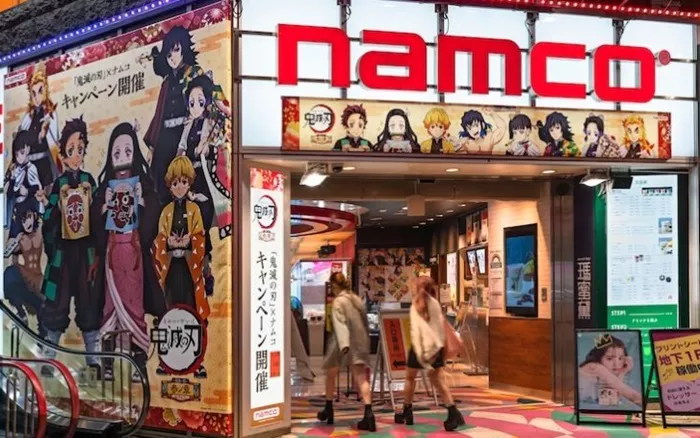Anime, often associated with high-energy battles and emotional storylines, has evolved into more than just a popular form of entertainment. As a cornerstone of Japan’s soft power, it plays a vital role in shaping cultural perceptions worldwide. Through its captivating narratives and unforgettable characters, anime bridges cultural gaps, promoting Japan’s heritage, values, and traditions to global audiences.
Once considered a niche interest, anime has blossomed into a global phenomenon. It has not only gained widespread acclaim but also become a lucrative industry, generating billions in revenue. The international market for anime surpassed domestic earnings for the first time in 2020, signaling the genre’s global reach and influence. With major streaming platforms like Netflix and Crunchyroll investing heavily in anime, its accessibility has skyrocketed, bringing Japanese culture directly to millions of viewers.
Understanding Soft Power
The concept of soft power was first introduced by political scientist Joseph Nye. It refers to a country’s ability to shape global influence through cultural, diplomatic, and ideological means, rather than through coercion or force. For Japan, anime has emerged as a key pillar of soft power, transcending geographical borders and acting as a cultural bridge between Japan and the rest of the world.
Anime’s ability to deliver both entertainment and cultural education allows it to function as an ambassador for Japan’s unique identity. It introduces viewers to elements of Japanese life—such as language, festivals, and customs—thereby fostering a deeper understanding of the country’s traditions. As a result, anime has evolved from a niche hobby into an essential cultural export, one that promotes global goodwill and strengthens diplomatic ties.
Anime as a Cultural Tour Guide
Anime’s deep connection with Japanese culture is evident in the way it intricately portrays the country’s traditions, landscapes, and daily life. Whether it’s the serene countryside depicted in My Neighbor Totoro or the vibrant urban settings of Jujutsu Kaisen, anime offers an accessible and engaging glimpse into Japanese society. These depictions serve as a virtual tour guide, sparking curiosity among international viewers and creating a desire to experience Japan firsthand.
Japan’s tourism industry has reaped the rewards of anime’s influence. In the years leading up to the pandemic, the country saw a dramatic increase in international visitors, many of whom cited anime as a key factor in their decision to visit. Locations featured in anime, such as the Ghibli Museum or Akihabara’s neon-lit streets, have become pilgrimage sites for fans eager to immerse themselves in the world they’ve seen on screen.
Cultural Exchange Through Storytelling
Anime’s strength lies not just in its visuals, but in its ability to tell stories that resonate with audiences across the globe. Unlike Western cartoons, which are often aimed primarily at children, anime spans a wide range of genres and themes, from action-packed sagas to philosophical musings on morality and existence. This diversity allows anime to engage viewers of all ages, offering fresh perspectives and fostering cross-cultural understanding.
Consider Attack on Titan, an anime set in a fictional world where themes of freedom, oppression, and survival are explored. These universal issues, though set against a fantastical backdrop, strike a chord with audiences worldwide, sparking discussions about human nature and society. The broad appeal of anime, coupled with its narrative depth, helps create a shared emotional experience that transcends cultural barriers.
Moreover, Japan recognizes the global impact of anime and has harnessed its power to promote the country’s image abroad. Iconic anime characters like Pikachu, the beloved mascot of Pokémon, have become symbols of Japan’s positive image on the world stage. Pikachu’s presence at global events, including World Cup appearances and international airline promotions, demonstrates how anime characters can function as ambassadors for Japan, extending the country’s influence beyond entertainment.
Japan’s Anime Legacy
As the world’s fascination with anime continues to grow, Japan has cemented its place at the forefront of global pop culture. Far from being merely a source of entertainment, anime has become a vital aspect of Japan’s soft power strategy, enriching international understanding of Japanese culture while simultaneously promoting the country’s creativity and innovation.
Anime conventions, such as Anime Expo in Los Angeles and Japan Expo in Paris, draw thousands of fans from all over the world. These events, along with the widespread popularity of anime series, underscore the genre’s cultural significance and its ability to bring people together from different backgrounds. The global anime community continues to thrive, creating lasting cultural connections and celebrating Japan’s unique contribution to the world of storytelling.
The Global Impact of Anime
Japan’s use of anime as a vehicle for soft power has proven highly effective. By blending art, culture, and entertainment, anime has become a dynamic force in shaping perceptions and fostering goodwill worldwide. Whether it’s through detailed cultural depictions or iconic characters that transcend language barriers, anime has created a global movement that connects people through shared human experiences.
In the years to come, anime will undoubtedly continue to play an integral role in Japan’s diplomatic and cultural strategy. As it attracts new generations of viewers, it reinforces the importance of cultural exchange and global understanding, ensuring that the bonds between Japan and the world grow ever stronger.
Conclusion
Anime is not merely a form of entertainment—it is a global cultural force that has become synonymous with Japan’s soft power. Through its unique blend of storytelling and cultural representation, anime serves as a bridge between nations, offering a glimpse into Japan’s rich traditions while fostering a sense of shared experience among audiences worldwide. As anime continues to captivate hearts and minds, its role in shaping cultural diplomacy will only grow more significant in the years ahead.
Related Topics
- Fate/Grand Order: Fujimaru Ritsuka wa Wakaranai Season 2 to Conclude on December 31
- Crunchyroll Anime Awards 2025 Returns to Tokyo, Unveils First Celebrity Presenter
- Fire Force Season 3: Anime Returns After Four-Year Hiatus


